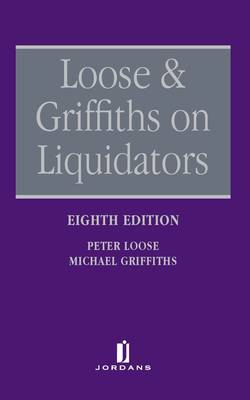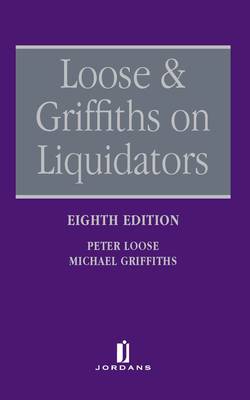
- Afhalen na 1 uur in een winkel met voorraad
- Gratis thuislevering in België vanaf € 30
- Ruim aanbod met 7 miljoen producten
- Afhalen na 1 uur in een winkel met voorraad
- Gratis thuislevering in België vanaf € 30
- Ruim aanbod met 7 miljoen producten
Zoeken
Loose and Griffiths on Liquidators
The Role of a Liquidator in a Winding Up (Eighth Edition)
Peter Loose, Michael Griffiths
Hardcover | Engels
€ 146,95
+ 293 punten
Omschrijving
Loose and Griffiths on Liquidators (formerly Loose on Liquidators) is a guide to the law relating to company liquidations and the important role of the liquidator in a winding up - their powers, duties and relationship to creditors, members, receivers and the court. It provides in a convenient single volume invaluable specialist advice and essential time-saving reference materials. Now in its 8th edition this definitive work on successful liquidations has been completely updated and expanded to include all the latest developments in liquidation practice and procedure. It includes new analysis of: - BYV Corporate Trustee Services v Eurosail - the meaning of insolvency for the purposes of the winding up of an insolvent company - HMRC v Football League and Football Association - the football creditor rule which varies in particular circumstances under the standard order of payment of debts - Re Stanford International Bank - the centre of main interests for the purposes of cross-border insolvency - Charambous v B & C Associates - the absence of a duty of care owed by an administrator to creditors in the absence of a special relationship
Specificaties
Betrokkenen
- Auteur(s):
- Uitgeverij:
Inhoud
- Aantal bladzijden:
- 736
- Taal:
- Engels
Eigenschappen
- Productcode (EAN):
- 9781846617300
- Verschijningsdatum:
- 31/03/2014
- Uitvoering:
- Hardcover
- Formaat:
- Genaaid
- Afmetingen:
- 156 mm x 246 mm
- Gewicht:
- 1152 g

Alleen bij Standaard Boekhandel
+ 293 punten op je klantenkaart van Standaard Boekhandel
Beoordelingen
We publiceren alleen reviews die voldoen aan de voorwaarden voor reviews. Bekijk onze voorwaarden voor reviews.











